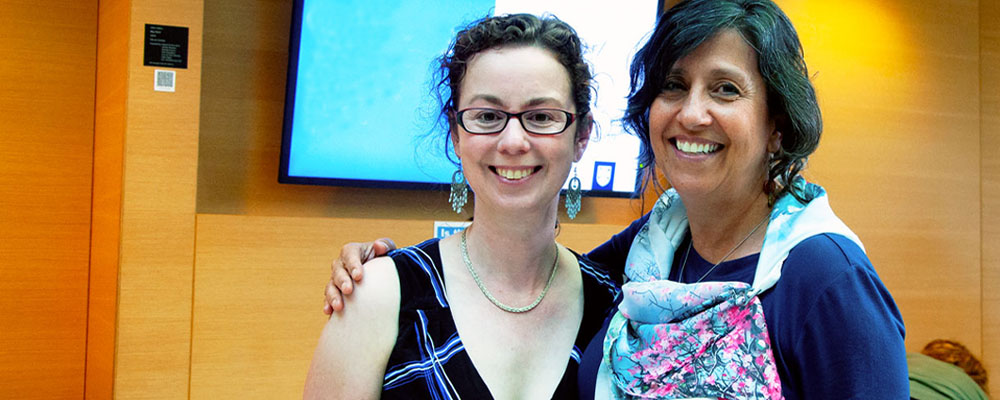
Our 2019 Outstanding Master-Level Graduate Student Award recipient is Master of Arts student, Leslie Shayer. An award that’s not often bestowed, Leslie has gone above and beyond since joining us at the Okanagan School of Education (OSE). She is a Grad Student Representative, the Secretary for the Stress, Coping, and Resilience Special Interest Group in the American Educational Research Association, and is always a cheerful presence at events – helping out whenever she can.
In addition to her course-work, Leslie has worked on two funded projects with Dr. Karen Ragoonaden: one on Mindfulness and Indigenous Knowledges: Shared Narratives about Identity and Well-Being; and another on a research cluster studying Culture, Creativity, Health and Well-Being.
On top of all her recent work at the OSE, Leslie has been a Professor of Mathematics and Statistics at Okanagan College, Kelowna Campus since 2006.
Question and Answer Session with Leslie
What is your research project, and what stage are you at?
My thesis research considers the impact of contemplative (e.g., mindfulness) practices on math anxiety. We all know people who are made uncomfortable or anxious by math. I would like to support them to feel less uncomfortable, using different breathing, visualization and meditation techniques. If I can help anyone feel better about math to make learning easier, then that would be a great success.
I am hoping to begin my research in the fall, ethics pending. I have submitted my ethics applications to both UBC Okanagan and Okanagan College. My committee has been formed and my proposal is complete. I will be working on the first few chapters of my thesis this summer.
Why did you choose that topic and what difference do you hope your research will make?
I’ve been teaching math, primarily at the post-secondary level, for almost twenty years. During that time, I have seen a lot of struggling students. I am hoping that this pilot project will offer ways to support students to achieve greater math success and no longer limit their career choices.
What did your research work with Karen Ragoonaden entail, and how has it influenced you?
During Mindfulness and Indigenous Knowledges: Shared Narratives about Identity and Well-Being, I had the opportunity to learn more about contemplative practices as well as Indigenous ways of knowing and being. To support Karen’s work, I performed qualitative analysis on four different surveys for her, something that I had never done before. Because of this work, I learned of the insights gained by considering written responses and searching for connecting themes. This is a concept that I previously overlooked by simply considering quantitative data, yet will use going forward.
The other project was also with Dr. Virginie Magnat and it related to a cluster studying Culture, Creativity, Health and Well-Being. Working as research assistant on this project was truly eye-opening. First of all, I was treated by all as a member of the team, despite only being a grad student. I had no expectation of such and felt truly flattered and included. I was exposed to numerous deep and informative discussions that still haunt my sleep. Though I continue to digest many thoughts, there is one that I may share. True wellness is not an individual thing, it is a community affair – something that we all need to work toward.
What advice do you have for future graduate students?
Dive in and participate as much as you can. Try not to get frustrated when you think your readings are in a foreign language — you aren’t alone feeling this way. Take advantage of the supportive and engaging learning environment. Enjoy the journey!